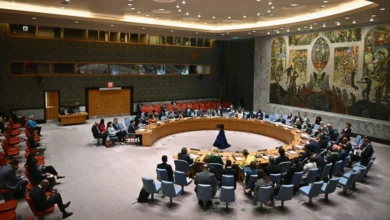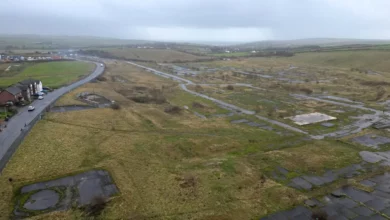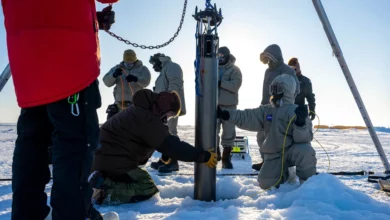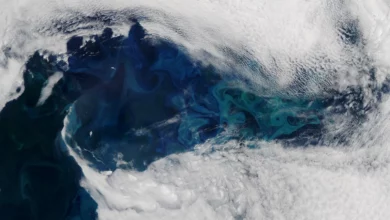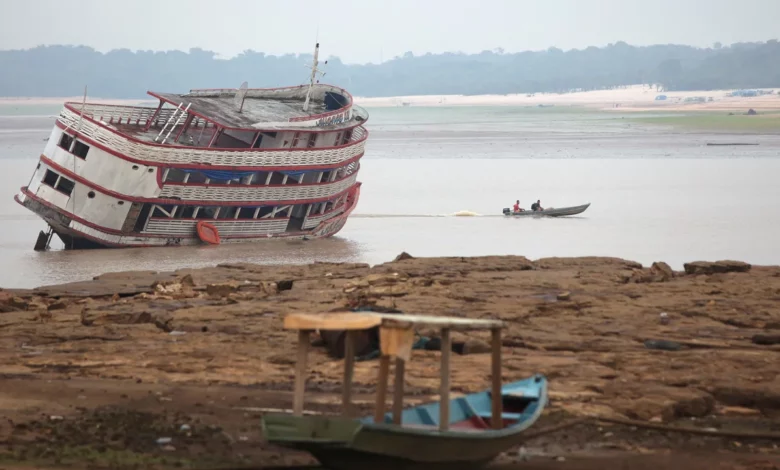
The port of Manaus, the region’s most populous city, at the meeting of the Rio Negro and the Amazon River, recorded 13.59 meters (44.6 feet) of water on Monday, compared to 17.60 a year ago, according to its website. That is the lowest level since records began in 121 years ago in 1902, passing a previous all-time low set in 2010.
Rapidly drying tributaries to the mighty Amazon have left boats stranded, cutting off food and water supplies to remote villages, while high water temperatures are suspected of killing more than 100 endangered river dolphins.
After months without rain, rainforest villager Pedro Mendonca was relieved when a Brazilian NGO delivered supplies to his riverside community near Manaus late last week.
“We have gone three months without rain here in our community,” said Mendonca, who lives in Santa Helena do Ingles, west of Manaus, the capital of Amazonas state. “It is much hotter than past droughts.”
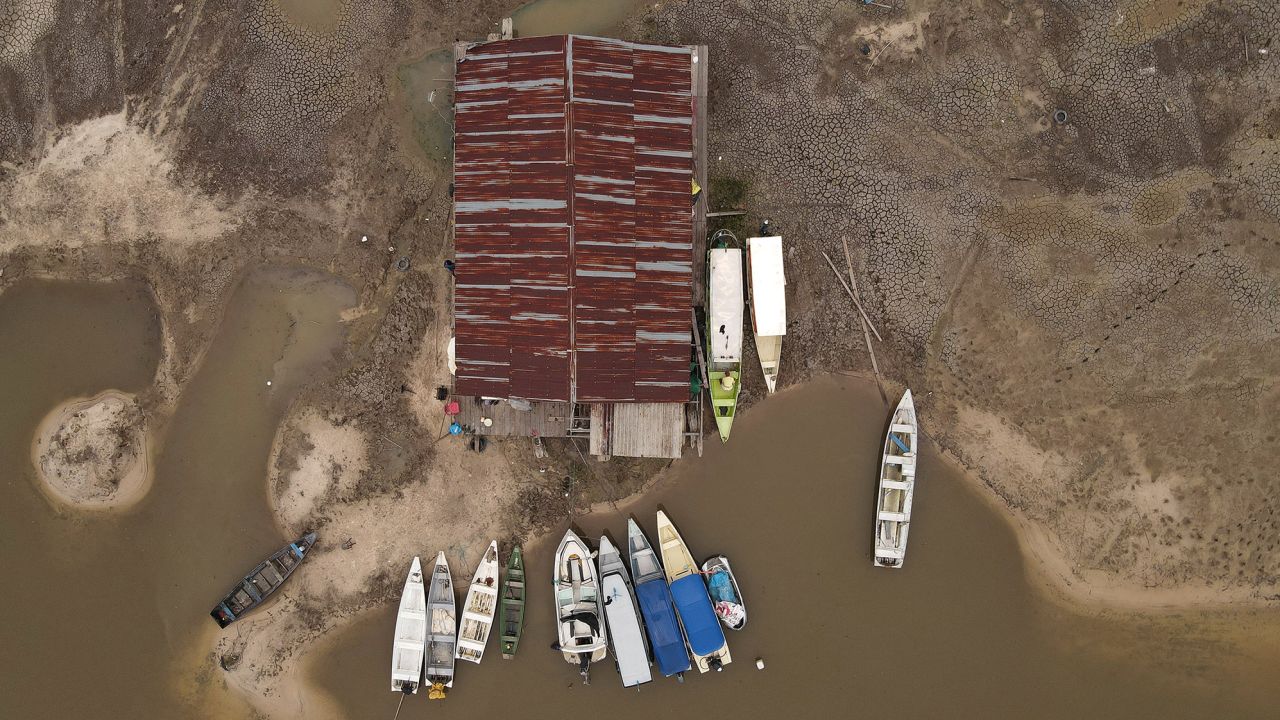
Some areas of the Amazon have seen the least rain from July to September since 1980, according to the Brazilian government disaster alert center, Cemaden.
Brazil’s Science Ministry blames the drought on the onset of the El Niño climate phenomenon this year, which is driving extreme weather patterns globally. In a statement earlier this month, the ministry said it expects the drought will last until at least December, when El Niño’s effects are forecast to peak.
Underlying El Niño is the long-term trend of global warming, which is leading to more frequent and more intense extreme weather events, like drought and heat.
The drought has affected 481,000 people as of Monday, according to the civil defense agency in the state of Amazonas, where Manaus is located.
Late last week, workers from Brazilian NGO Fundação Amazônia Sustentável fanned out across the parched region near Manaus to deliver food and supplies to vulnerable villages. The drought has threatened their access to food, drinking water and medicines, which are usually transported by river.
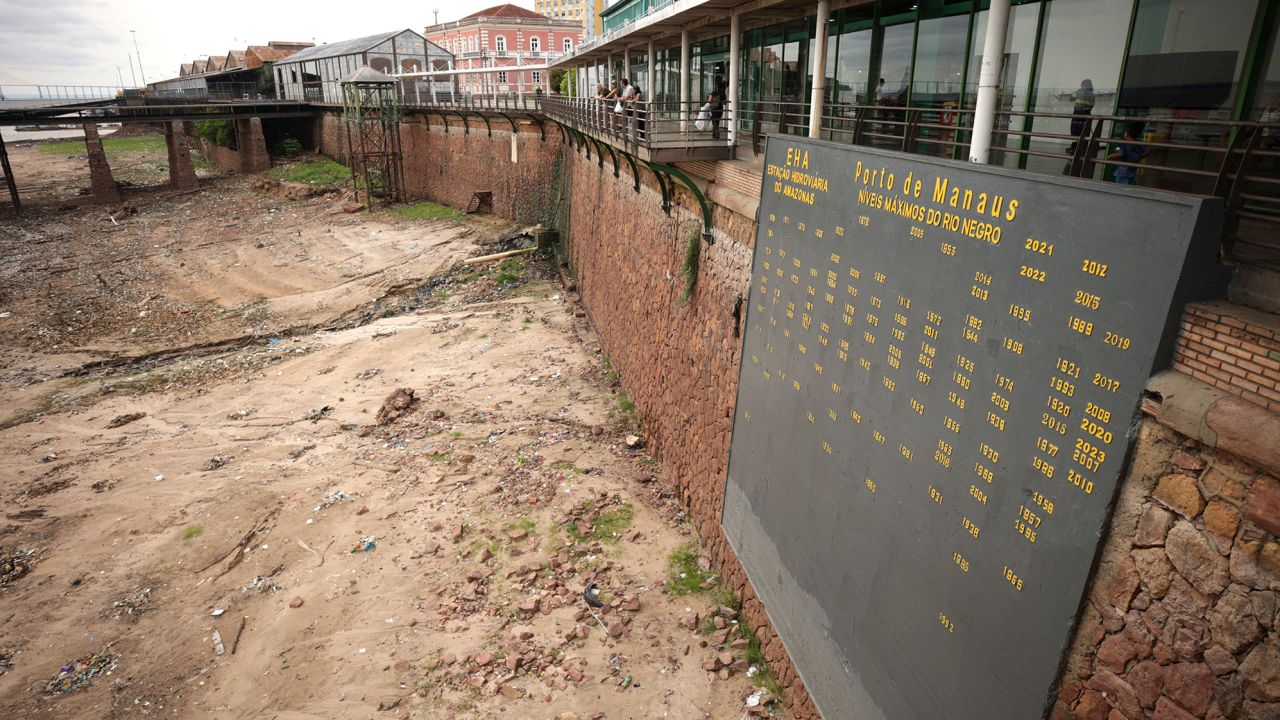
Nelson Mendonca, a community leader in Santa Helena do Ingles, said some areas are still reachable by canoe, but many boats have not been able to bring supplies along the river, so most goods are arriving by tractors or on foot.
“It’s not very good for us, because we’re practically isolated,” he said.
Luciana Valentin, who also lives in Santa Helena do Ingles, said she is concerned about the cleanliness of the local water supply after the drought reduced water levels.
“Our children are getting diarrhea, vomiting, and often having fever because of the water,” she said.

